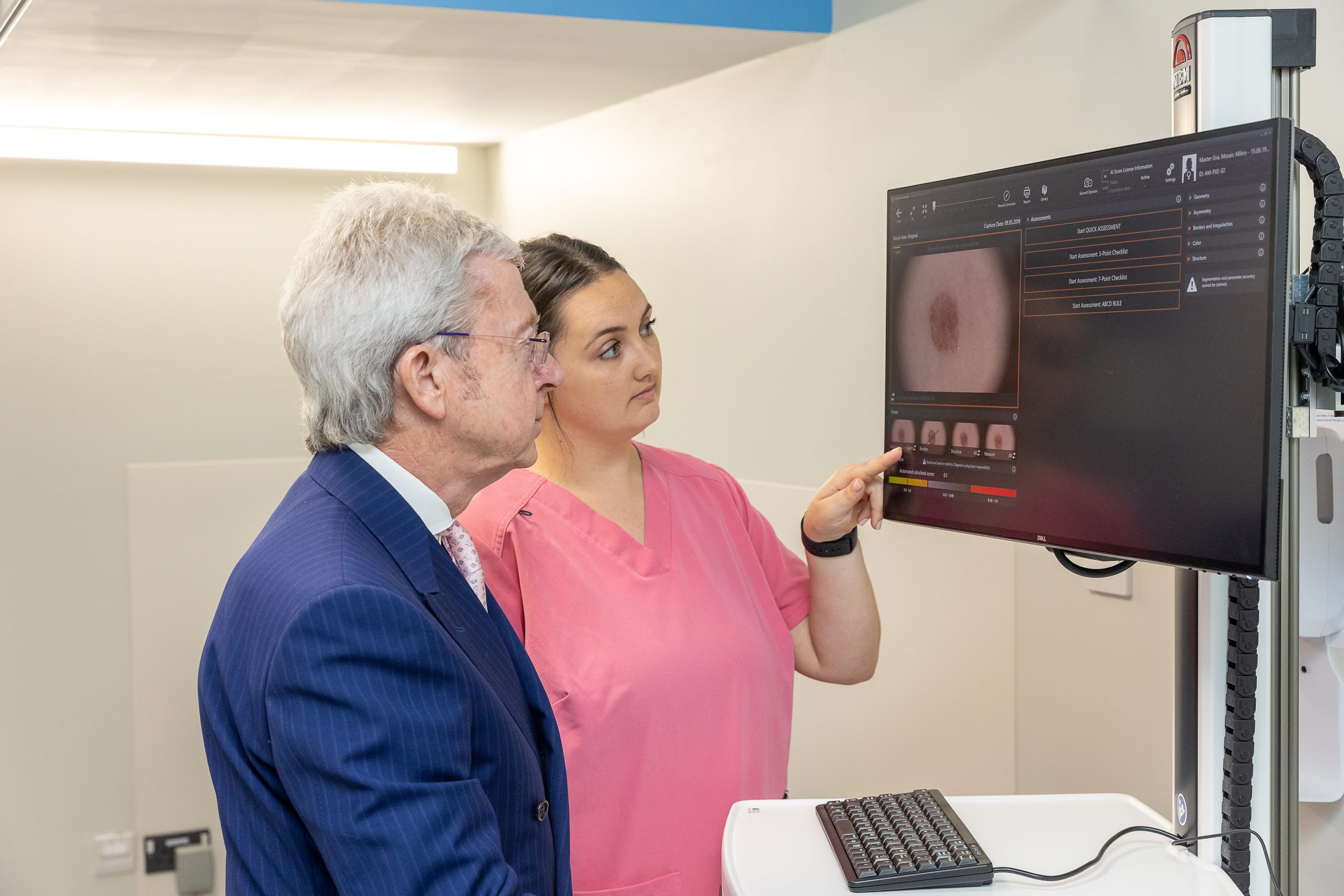Frequently Asked Questions
How much is Mole Screening?
A full body mole screening appointment costs €330 and consists of head to toe, full body digital imaging and dermoscopic assessment of any lesion that has atypical characteristics.
We also offer a dermoscopic assessment of up to 5 lesions for €160.
Returning appointment fees are as follows:
- Returning full body screening – €275
- Returning mole check – €120
- Short interval follow up (as recommended by Medical Team) – €100
Is this service covered by health insurance?
We are not affiliated with any health insurance provider, and cover for our services are not guaranteed. While cover is unlikely, some patients have been successful in claiming back from their provider, and so we would recommend checking with your provider directly for more information on your level of cover for screening services.
Unfortunately, our receipts are autogenerated from our booking software, and cannot be amended to include additional or alternative information. Our receipts include the names of all doctors involved in the reviewing process.
Do I need to pay a deposit for the appointment?
Due to the level of demand for our services, we would require a €50 deposit to secure your appointment with one of our melanographers.
Is there a cancellation fee?
Once you cancel your appointment at least 48 hours prior to your scheduled time, your deposit will be returned. If the appointment is cancelled within 48 hours, your deposit will be lost as a cancellation fee.
Do I need a GP referral to attend your clinic?
You do not need a GP referral to attend our clinic. You can self-refer by contacting our Central Booking Office on 021 234 7560 or by emailing info@roseclinic.ie. You can also schedule an appointment by clicking the Book Now button in the bottom right corner of the screen.
Can children attend Rose Clinic?
Rose Clinic’s Mole Screening and Mole Check services are suitable for those aged 16 years or older.
What appointment type is for me?
If you have a large quantity of lesions, or want a baseline of your skin for future analysis, a full body screening is appropriate. If you have an immediate concern or want a specific lesion(s) check, a mole check will do.
Will I see a doctor on the day of my appointment?
You will not meet a doctor on the day of your appointment. You will be seen by a member of our nurse-led melanographer team who will complete the screening and carry out your appointment.
Who will review my imaging?
Your imaging will be reviewed by one of our doctor-led medical team. In some instances, your case may be presented at our multidisciplinary meeting to ensure the best recommendation is made to you.
How and when will I receive my recommendation?
We aim for you to receive your outcome within 2 weeks of your appointment. You may receive this by email or by a phonecall from one of our doctors.
Pleaes note, as our Central Hub is in Cork, the clinic will be contacting you from a Cork number, even if you attended another one of our clinics.
Do you assess other skin conditions?
We are not a dermatology clinic, and therefore cannot comment on general skin conditions.
What is the difference between dermoscopy and dermatology?
Some people are confused by the difference between dermatology and dermoscopy. Dermatology is a subspeciality within medicine that focuses strictly on the skin. Dermatologist deal with skin cancers, but they also deal with a variety of general skin conditions such as ezcema, psoriasis, and things of a similar nature. Dermoscopy is strictly a imaging modality that is often used by dermatologists, but is also used by other healthcare practitioners that are train in dermoscopy.
THe whole principle behind dermoscopyis that it is a non-invasive diagnostic tool for analysising skin and skin lesions. We use a device called a dermoscope which is high magnification lense coupled with a light source which is used on the surface of the skin to analyse it for any changes or any concerning features. The premise behind dermoscopy is that we can detect subtle changes in the skin, subtle features in your lesions, and any dangerous changes occuring better than you can with just the human eye.
Patients essentially, if they have dermoscopic imaging of their concerning lesions, are getting a more accurate diagnosis, they are getting an earlier diagnosis, which then leads to hopefully earlier treatment and therefore better outcomes long terms.

